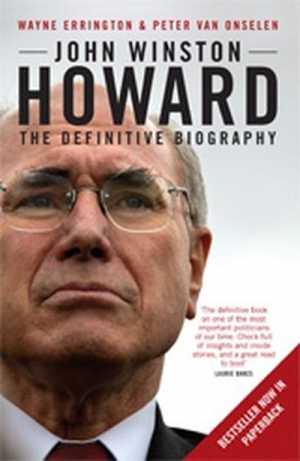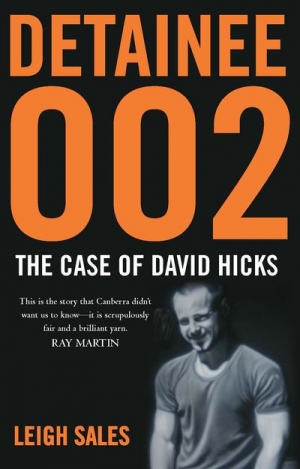Melbourne University Publishing
What can explain the growing assertiveness of Islamist groups? Why are key aspects of the Islamic faith and civilisation that helped Islam flourish in its Golden Age – respect for life and property, philanthropy, tolerance and a thirst for science – being sidelined in the Muslim world? How can we explain the seemingly unstoppable slide from rational thinking in the Muslim world?
... (read more)Andrea Goldsmith reviews 'A Family History of Smoking' by Andrew Riemer
A Family History of Smoking, the most recent of Andrew Riemer’s memoirs, focuses on the world of his great-grandparents, his grandparents, and his parents. In so doing, it traces Hungary from the days of the Austro-Hungarian empire and its collapse at the end of the Great War, on through the brief springtime of the 1930s and the chaos of displacement and destruction of World War II. It is a rich and rewarding memoir.
... (read more)On the front of the only postcard my grandfather kept is a picture of the United States Navy’s ‘great white fleet’ off Australian shores. A Pennsylvanian uncle sent it to the nine-year-old boy in 1908, ‘from one white man to another’. After reading Marilyn Lake’s and Henry Reynolds’s important new book on the transnational assertion of white racial identity in the early twentieth century, I now know that our American relative was merely echoing Rear-Admiral Sperry, who, at a luncheon in Sydney the same year, greeted his Australian hosts as a ‘white man to white men, and I may add, very white men’.
... (read more)Nick Fischer reviews 'Against the Grain: Brian Fitzpatrick and Manning Clark in Australian history and politics' edited by Stuart Macintyre and Sheila Fitzpatrick
Against The Grain celebrates two iconoclastic Australian historians: Manning Clark and Brian Fitzpatrick. Comprising papers from a 2006 conference organised by two of their daughters, both distinguished academics, Against the Grain offers critical thoughts and reminiscences of family members, friends, colleagues, students and academic successors of the two men.
... (read more)Norman Abjorensen reviews ‘John Winston Howard: The biography’ by Wayne Errington and Peter van Onselen
Contemporary biography presents many challenges, even more so when the subject is a politician who is still in office. It is, at best, a progress report: necessarily provisional both in its analysis and its attempt to anticipate the weightier judgment of history. By its very nature, it inclines more towards journalism than towards scholarly assessment.
... (read more)Robert Reynolds reviews ‘Detainee 002: The case of David Hicks’ by Leigh Sales
What is to be done with David Hicks? For more than five years, this question bubbled away in Australian political discourse, ever more so as the years passed. Today Hicks sits in a South Australian prison, serving out an abbreviated sentence for supporting terrorism. In a few months he will be a free man; well as free as his notoriety and an unforgiving government will allow. Hicks’s guilty plea and his short sentence (tax evasion can land you a heftier punishment) have taken the heat out of the affair. This is probably a good thing for Hicks, and even better for the embattled Howard government.
... (read more)Peter Rose reviews 'Life Class: The education of a biographer' by Brenda Niall
It is rare in Australia for a literary biographer, even one of distinction, to write at book length about her intellectual formation and biographical pursuits. A country so demonstrably forgetful of its best poetry and fiction is unlikely to foster a literature of this burgeoning genre, still emerging from its decorous constraints. Elsewhere, we have Richard Holmes’s seminal Footsteps: Adventures of a Romantic biographer (1995) and Leon Edel’s Bloomsbury: A house of lions (1979), but Australian examples are few. So it is good to have Brenda Niall’s lucid account of her gradual transformation from academic to biographer.
... (read more)Fred Ludowyk reviews 'A Conga Line of Suckholes: Mark Latham’s book of quotations' by Mark Latham
This is a selection of the quotations Mark Latham collected during his time in local and federal politics. The quotations are arranged alphabetically by subject, from ‘Aboriginal People’ to ‘Working Class’. Given Latham’s career, it is not surprising that the emphasis is on political quotations and quotations from politicians.
Some quotations are quite familiar, as with Winston Churchill’s comment on a former Conservative MP who was seeking to stand as a liberal: ‘The only instance of a rat swimming towards a sinking ship.’ I was touched by Archbishop Desmond Tutu’s incisive critique of colonising missionaries: ‘When the missionaries first came to Africa they had the Bible and we had the land. They said “Let us pray” and when we opened our eyes, we had the Bible and they had the land.’ Charles de Gaulle demonstrates Gallic culinary wit: ‘How can you govern a country which has 246 varieties of cheese?’ Readers will find their own favourites.
... (read more)Michael Gurr was Victorian Premier Steve Bracks’s first senior speechwriter. I am his latest. Gurr worked for Victorian Treasurer John Brumby when he was leader of the state opposition in the mid-1990s. So did I. Gurr wrote the launch speeches for Steve Bracks’s successful 1999 and 2002 state election campaigns. As I type this review, I am also, coincidentally, in the midst of ballpointing my way to the summit of my first draft of the launch speech for the 2006 campaign (a campaign that I cannot know the result of as I type, but you will already know as you read this). The coincidences do not end there.
Gurr’s speech for the 1999 campaign – one made famous by the unexpected defeat of Premier Jeff Kennett – was launched in Ballarat. The 2006 campaign will be launched in Ballarat. Gurr is known in Labor circles as a ‘creative type’ (read: prolific, award-winning playwright of works such as Jerusalem and Sex Diary of an Infidel). I am also known as a ‘creative type’ (novelist and poet). And yet, despite all these coincidences and intersecting lines, not to mention the backbench of associates we have in common, Gurr and I had never met when a speech request landed on my desk a while back with the title ‘Michael Gurr book launch’. Of course, I knew of Gurr. Sort of.
... (read more)Tamas Pataki reviews 'My Israel Question' by Antony Loewenstein
When I started reading My Israel Question, the Israel Defence Force Chief of Staff had just vowed to ‘turn back the clock in Lebanon by twenty years’; and the demolition was underway. Beirut’s airport, major roads, bridges, power generation facilities and other civilian infrastructure had been bombed, and villages and densely populated suburbs were being reduced to rubble. In a report some weeks later (August 23), Amnesty estimated that 1183 Lebanese had been killed, mostly civilian, about one-third of them children. The injured numbered 4054, and 970,000 people were displaced; 30,000 houses, 120 bridges, 94 roads, 25 fuel stations and 900 businesses were destroyed. Israel lost 118 soldiers and 41 civilians, and up to 300,000 people in northern Israel were driven into bomb shelters. Israel estimates that Hezbollah, the putative object of its wrath, lost about 500 fighters.
... (read more)









